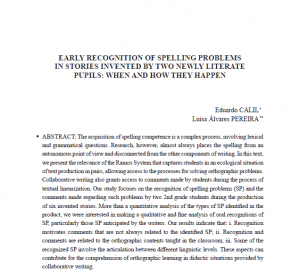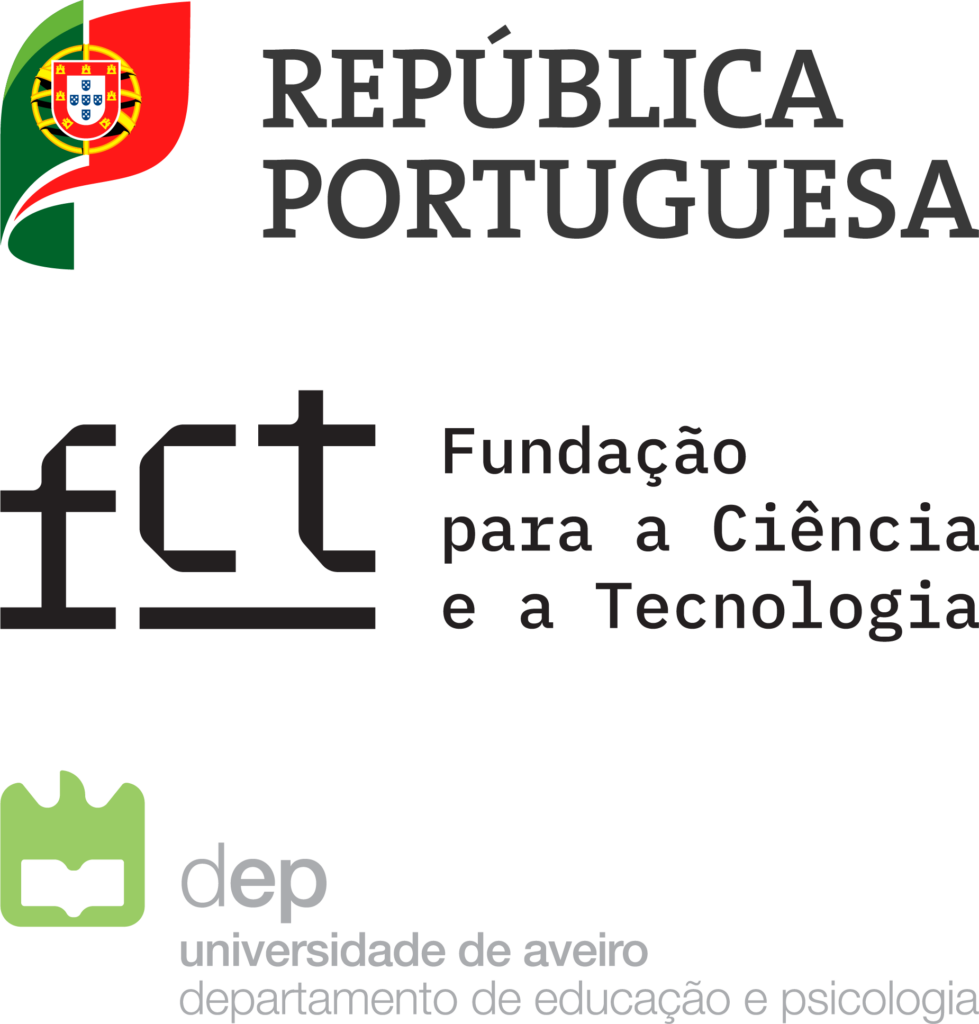 Eduardo Calil & Luísa Álvares Pereira (CIDTFF) | Alfa: Revista de Linguística, v.62, n.1, pp. 91-123
Eduardo Calil & Luísa Álvares Pereira (CIDTFF) | Alfa: Revista de Linguística, v.62, n.1, pp. 91-123
Artigo integral disponível em Português e Inglês
Abstract:
The acquisition of spelling competence is a complex process, involving lexical and grammatical questions. Research, however, almost always places the spelling from an autonomous point of view and disconnected from the other components of writing. In this text, we present the relevance of the Ramos System that captures students in an ecological situation of text production in pairs, allowing access to the processes for solving orthographic problems. Collaborative writing also grants access to comments made by students during the process of textual linearization. Our study focuses on the recognition of spelling problems (SP) and the comments made regarding such problems by two 2nd grade students during the production of six invented stories. More than a quantitative analysis of the types of SP identified in the product, we were interested in making a qualitative and fine analysis of oral recognitions of SP, particularly those SP anticipated by the writers. Our results indicate that: i. Recognition motivates comments that are not always related to the identified SP; ii. Recognition and comments are related to the orthographic contents taught in the classroom; iii. Some of the recognized SP involve the articulation between different linguistic levels. These aspects can contribute for the comprehension of orthographic learning in didactic situations provided by collaborative writing.
Keywords: Classroom; Text production; Spelling; Erasure; Metalinguistic; Learning; Collaborative writing




